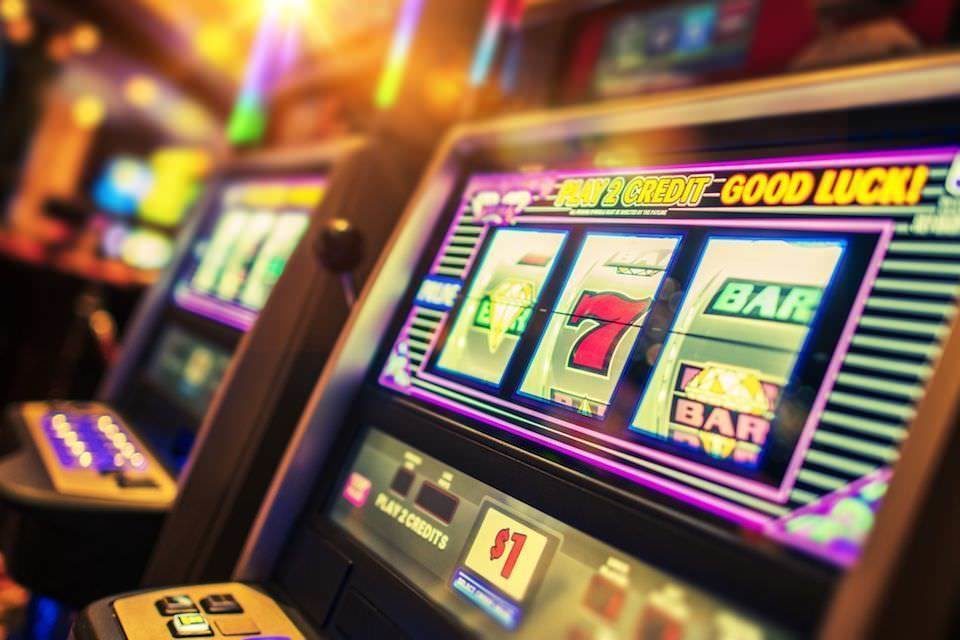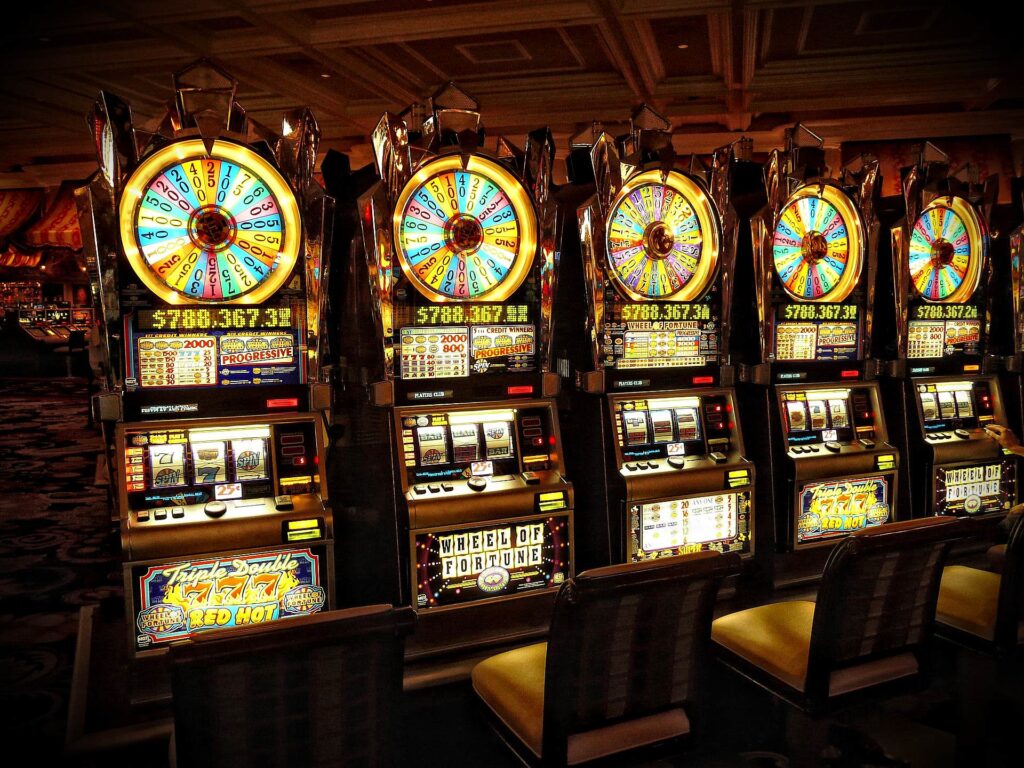Slot machines attract the attention of many casino visitors. Winning is always determined by the operation of a special random number generator (RNG). This means the winning combination is purely random. Before starting a game, players should be aware of some interesting facts and common myths about slot machines.
Myth #1 – Pressing the button harder increases your chances of winning
A widely held belief among players is that pressing the button harder increases the chances of winning. However, this misconception has no basis in reality and only reinforces false ideas about how these devices operate.
Modern slot machines operate based on RNGs. This mechanism determines the outcome of each spin. No matter how hard or softly you press the button, the result is always random. The RNG ensures that every spin has an equal chance of winning and external actions do not affect the final outcome. In some activities, like sports, physical effort can influence the result. However, slot machines are different. Their essence lies in randomness, so players cannot control the outcome of the game.
Slot machine manufacturers prioritize fairness. The machines undergo rigorous testing and certification to ensure they meet randomness standards. Each spin is independent of previous and future ones, and no external factor can improve your chances of winning.

The myth that pressing the button harder increases your chances of winning is false. It creates an illusion of control, making players believe they can influence the game. This illusion often leads to misunderstandings about how slot machines work. Relying on physical effort to increase your chances is futile.
Myth #2 – Casinos completely control slot machines
Another common myth is that casinos have full control over how slot machines operate. Some players believe that casinos manipulate the results of spins, either increasing or decreasing the chances of winning. Debunking this myth is simple:
- Modern games operate on complex software algorithms, including the RNG. This ensures that each spin is independent of previous and subsequent ones. Casinos have no way to interfere with the RNG or alter its results.
- Slot machines in casino are strictly regulated by government agencies. Casinos must undergo certification and are regularly audited by independent auditors. These checks ensure that slots operate fairly and meet established standards. If casinos could control the machines, it would violate their licensing agreements.
- Slot machines are programmed to maintain a consistent probability of winning, regardless of external factors or the number of people watching. The RNG continues to generate random results, uninfluenced by the surrounding environment.
All licensed casinos are invested in maintaining their reputation and customer trust. Tampering with slot machines or adjusting them in their favor would lead to a loss of trust.
Myth #3 – The bet amount affects the payout percentage
A common misconception is that the bet amount determines the payout percentage in slot machines. This myth is based on the assumption that the higher the bet, the greater the chances of winning. However, this belief contradicts how modern slot machines actually work. Here’s why:
- Payout percentage. This is the portion of the total bets that the machine returns to players as winnings. This percentage is programmed into the machine and remains unchanged.
- Misconception about bet size and payout percentage. Players often develop this false belief due to subjective experiences. Each spin is determined by a random number generator (RNG), which operates independently of the bet size. The RNG does not consider the size of the bets, and it doesn’t affect the chances of winning.
- Payout percentage calculation. The payout percentage is calculated over a large number of spins and does not guarantee any specific win. RTP reflects long-term trends but cannot predict the outcome of individual spins.
The myth that the bet amount influences the payout percentage often leads to wrong strategies. Players may place larger bets in hopes of increasing their chances of winning. The automation and regulation of slot machines prevent any manipulation. Slot machine providers and casinos strictly follow laws and standards governing payout percentages. Any attempts to interfere with the machine’s operation are illegal.
Myth #4 – Winning depends on the slot machine’s location and time of day
Another widespread myth is that winnings depend on the location of the slot machine or the time of day. However, this does not align with how slot machines work and is one of many myths associated with gambling.
Modern slots use RNGs, which are responsible for randomness and unpredictability. They are not influenced by external factors, such as the machine’s location in the casino or the time of day. Each spin is considered an independent event, unrelated to previous or future spins.

This myth persists due to players’ subjective observations, where they may win more frequently on certain machines than others. However, these observations are merely due to chance. Slot machines cannot remember previous results, nor do they adjust based on the time of day.
Some players believe that machines placed near the entrance are programmed to win more frequently. But this assumption is incorrect. Casinos are committed to providing fair play and equal conditions for all guests, regardless of a machine’s location. Regulatory bodies and independent auditors monitor the machines to ensure they meet fairness standards.
The time of day also does not affect slot machines – casino slots. Some gamblers believe that at night when fewer people are playing, slot machines are more likely to pay out. However, the RNG works the same at all times, and the probability of winning remains unchanged.
Myth #5 – You can’t win multiple jackpots in a row
There is a common myth that it’s impossible to win several jackpots in a row. Many players believe that after hitting one big jackpot, the chances of winning again drop significantly. This misconception is based on the false assumption that slot machines remember previous results and prevent repeat wins.
In reality, each spin is an independent event determined by a random number generator. The RNG ensures the unpredictability of every spin’s outcome. The odds of winning a jackpot are the same for every spin, even if a player recently hit a big win. Some believe that after a jackpot, the machine is programmed for a long period of losses. However, the mechanics of the game mean that each spin is independent, and the odds of winning remain constant throughout play.
The myth about not being able to win multiple jackpots stems from the rarity of such occurrences. However, the infrequency is purely a matter of statistical probability. While jackpots are rare, there are no technical barriers to winning more than one in a row.
Myth #6 – Winning depends on the coins or bills used
A widespread myth is that the type of coins or bills used affects the chances of winning. This belief is based on the idea that slot machines can differentiate between different denominations and prefer certain ones. In reality, slot machines accept both coins and bills. Once the money is inserted, the machine converts it into credits, which the player uses to place bets. After conversion, the denomination of the coins or bills becomes irrelevant, as the machine only recognizes them as a corresponding number of credits. The game begins when the player presses a button or pulls a lever, and from that point on, the outcome is determined by the RNG.
This myth likely originated from players’ personal experiences, where they associate successful or unsuccessful gaming sessions with the denomination of the money they inserted. However, these associations are purely coincidental and have no relation to how slot machines actually work. All slot models undergo rigorous certification and testing by independent bodies to ensure fair play.
Myth #7 – Playing a slot machine for a long time helps you understand how it works
Another myth is that playing a specific slot machine for an extended period helps players understand how it works and increases their chances of winning. According to this misconception, if a player spends enough time on a machine, he can decode its algorithms and predict future outcomes. This myth is false, and the reason once again is in the RNG. The RNG is programmed in such a way that each result is independent of the others. This means that no matter how much time players spend on a machine, they cannot learn its logic or predict the outcome of future spins.
These facts about slot machines show that extended play does not influence the results. Unlike some other types of gambling, where strategy and knowledge of the rules are crucial, slot machines offer no real opportunities for analysis. If a player believes he is noticing patterns in wins or losses, this is simply randomness at play, not a predictable system.
This myth is also linked to false associations. A casino guest might observe that after a long losing streak, a win finally occurs. This leads them to believe they’ve uncovered some hidden algorithm in the machine. However, when a player wins after many losses, it’s purely by chance, not a sign of being able to predict future outcomes or discover a pattern.
Myth #8 – casino slot machines have “Cold” and “Hot” cycles casino
A common myth is that slot machines go through “cold” and “hot” cycles. This belief is based on the assumption that machines periodically enter phases where they either frequently produce wins or offer none at all. However, this idea has no factual basis and contradicts the fundamental workings of these games.
Each player needs to understand that slot machines cannot remember previous results or enter cycles that affect the odds of winning. Each new spin is an independent, random event, and external factors do not influence its outcome.
The myth of these cycles arises from players’ subjective experiences. After a long losing streak, a player may win and assume that the machine has entered a “hot” cycle. Conversely, a series of losses is often interpreted as the machine is in a “cold” cycle. However, every win or loss is purely the result of the RNG and is not tied to any cyclical process. Many players try to use this myth to build their own gaming strategies. They attempt to catch a machine in a “hot” cycle to improve their chances of winning.
Believing in such a myth can lead to unrealistic expectations among players. When casino guests anticipate that a machine will start paying out after a streak of losses, they may spend more time and money trying to catch a “hot” cycle. In reality, every spin is random, and the chances of winning do not change based on previous results.



